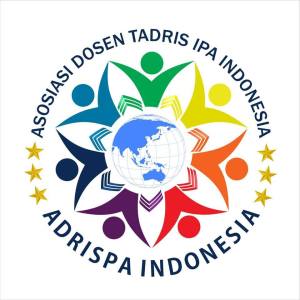ANALYSIS OF STUDENT'S RATIONAL THINKING ABILITY IN A CAREER PERSPECTIVE IN THE FIELD OF SCIENCE, TECHNOLOGY, ENGINEERING, MATHEMATICS (STEM)
DOI:
https://doi.org/10.21154/insecta.v3i2.5138Keywords:
Rational Thinking, Career Perspective, STEM Field, Science LearningAbstract
The ability to think rationally is the ability that a person has based on real events so that he is able to solve problems with a reasonable mindset that can be accepted by reason. The STEM approach is an approach that combines four fields of science, namely Science, Technology, Engineering, and Mathematics which is interesting to apply in science learning, which is able to provide experience and lead to career fields. This study aims to determine the students' rational thinking skills towards the career perspective of the STEM field. The research method used is a qualitative method with the type or design of naturalistic research. Data were collected by observation, documentation and in-depth interviews (In Depth Interview) which were conducted on 7 selected informants. The data that has been obtained is then analyzed using the Miles & Huberman model which consists of three stages, namely 1) Data Reduction 2) Data Presentation 3) And Drawing Conclusions, research analysis is assisted by Nvivo12 Software for the coding process to determine the category of rational thinking skills and answers that according to the interview. Based on the results of data analysis shows that students have a tendency to be creative in processing a product with the ability to imagine and the ability to imagine that applies the ability to imagine and imagine. Students have a tendency to have a career in the fields of Science, Engineering and Technology so that students have the desire to have a career in the biotechnoplaner field.
References
Anggraini, F. I., & Huzaifah, S. (2017). Implementasi STEM dalam pembelajaran IPA di Sekolah Menengah Pertama. Program Studi Pendidikan Biologi Fakultas Keguruan Dan Ilmu Pendidikan Universitas Sriwijaya, 1998, 722”“731.
Ariza Rahmadana Hidayati, Wirawan Fadly, & Rahmi Faradisya Ekapti. (2021). Analisis Keterampilan Berpikir Kritis Siswa pada Pembelajaran IPA Materi Bioteknologi. Jurnal Tadris IPA Indonesia, 1(1), 34”“48. https://doi.org/10.21154/jtii.v1i1.68
Dina, A., Irawan, E., & Artikel, I. (2021). Analisis Kemampuan Berpikir Logis Siswa Kelas VII pada Tema Pencemaran Lingkungan. Jurnal Tadris Ipa Indonesiadonesia, 1(2), 228”“238.
Ganesha, U. P. (2013). Pengaruh Strategi Pembelajaran Kontekstual Berbantuan Mind Mapping Terhadap Keterampilan Berpikir Rasional Ipa Siswa.
Hendrayana, S. (2017). Meningkatkan Keterampilan Berpikir Rasional Siswa Melalui Model Sains Teknologi Masyarakat Pada Konsep Sumber Daya Alam. Pendas : Jurnal Ilmiah Pendidikan Dasar, 2(1), 73. https://doi.org/10.23969/jp.v2i1.471
Muji Rahayu, Tjutju Yuniarsih, Disman, Janah Sojanah, Iman Sidik Nusannas, D. M. (2020). Jurnal Visipena. Jurnal Visipena, 11(1), 99”“115.
Nugroho, O. F., & Nurcahyo, M. A. (2018). Analisis Literasi Pendidikan STEM pada Siswa dan Pemahaman Konsep IPA Melalui Peta Konsep di SDN Palasari II. Thabiea : Journal of Natural Science Teaching, 1(2), 121. https://doi.org/10.21043/thabiea.v1i2.4395
Saputra, M. A. (2014). Instrumen Penelitian Kualitatif, Kuantitatif, Dan Pengembangan. Implementation Science, 39(1), 1”“24. http://dx.doi.org/10.1016/j.biochi.2015.03.025%0Ahttp://dx.doi.org/10.1038/nature10402%0Ahttp://dx.doi.org/10.1038/nature21059%0Ahttp://journal.stainkudus.ac.id/index.php/equilibrium/article/view/1268/1127%0Ahttp://dx.doi.org/10.1038/nrmicro2577%0Ahttp://
Susanto, M. Y., Mumpuni, A. D., & Fadhilah, I. N. (2019). Pengembangan Pola Pikir Rasional dan Objektif dalam Pembelajaran IPA melalui Pendekatan Scientific. Buletin Literasi Budaya Sekolah, 1(1), 12”“18. https://doi.org/10.23917/blbs.v1i1.9302
Suwarsono, S. (2016). Pengantar Penelitian Kualitatif. Hari Studi Dosen Program Studi Pendidikan Matematika, 1.








